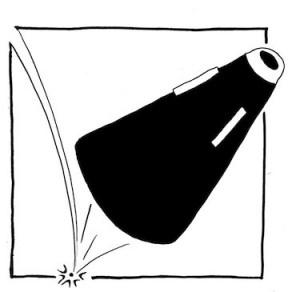I don’t think I’m going out on a limb by opining that the result of this year’s presidential election left some Senza Sordino readers devastated, some exultant, but almost all surprised. Similarly, it seems safe to say that the President-elect’s mercurial pronouncements on the campaign trail and the “Thank You Tour” have left us with a great deal of uncertainty about what exactly will happen once he takes office. Even if I were an expert on politics, I would hesitate to make predictions.
But it seems likely to me that the climate for labor unions will become more unfavorable. For example, the stance of various federal departments and agencies (e.g., the National Labor Relations Board) will almost certainly be less labor-friendly after President Obama’s appointees are replaced with President-elect Trump’s. It is also possible that some of our managers and board members will feel which way the wind is blowing and decide to take a harder anti-union line in bargaining.
In light of this our solidarity becomes even more important, even if it is perhaps more difficult to sustain. Whether sticking together to parry proposed wage cuts as the musicians did in Fort Worth (see “Growth Not Cuts: A Done Deal” on page 1), holding strong against determined efforts to cut pay for subs and extras as they did in National (see “National Symphony Orchestra Settles”, in “Newslets” on page 7), or, incredibly, doing both as they did in Pittsburgh, where, little lauded, their strike-ending agreement restores sub and extra pay to parity with the full-time musicians, even in the face of not being able to fully escape wage cuts (see “Down to the Wire” on page 1)—these recent exemplars of solidarity must be our models.
In addition, the problem of “fake news”, now freshly in our awareness, will not simply dissipate. It is likely to get worse. Did you know that 83.4% of Trump voters believe that President Obama was born in Kenya? Well, you shouldn’t “know” that, because I just pulled that number out of thin air—but did you notice the aura of authenticity granted by my artificial numerical precision? We must all become informed and, more importantly, skeptical consumers of information, granting trust to news sources not lightly but only after due diligence.
A related problem—that of information bubbles (in which only like-minded perspectives are ever heard)—is another one for our orchestras. As we engage with our communities, we must endeavor to reach wider than the first circle of our most deeply devoted fans, so that we draw in new audiences and are responsive to the needs of the entire community. Support that is broad as well as deep was critical in the successful resolution of recent crises for ICSOM orchestras, and it will be critical for orchestras’ ongoing success.
Most importantly, we must draw courage and conviction from the idea that the world is in greater need of our music. The divisions and rifts in communities around the world, but more vividly here at home, must be healed. The power of music to bring people together (evidenced by “A Week of Relief” on page 4) continues undiminished. We should wield it.






